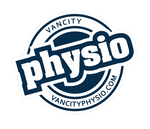Experiencing knee pain or discomfort can be unsettling, especially when you suspect something significant like a meniscus tear. The meniscus, a C-shaped piece of cartilage in your knee, acts as a shock absorber and stabilizer. A tear can cause a range of symptoms, and understanding them is the first step towards recovery.
At VanCity Physio, we often hear this question, and the best way to determine if you've torn your meniscus is through a thorough assessment by a qualified physiotherapist. Here’s what we typically look for and ask when you come in for a consultation:
What Your Physiotherapist Wants to Know: The Subjective Assessment
Our assessment begins with a detailed conversation about your injury. We'll ask specific questions to understand the nature of your pain and how the injury occurred:
-
Did You Feel or Hear a "Pop"? While common with ACL tears, some meniscus tears, especially traumatic ones, can also produce a popping sensation or sound at the time of injury.
-
Do You Have Swelling or Stiffness? Swelling (effusion) and stiffness are common reactions to a meniscus injury, indicating inflammation within the joint.
-
What Was the Mechanism of Injury? Many meniscus tears occur with a "plant and twist" motion, often seen in athletes during sports like soccer or basketball. Understanding how the injury happened helps us pinpoint potential structures involved.
-
Does Your Knee Feel Like It's "Giving Way" or Is It Locked? Instability or a sensation of your knee buckling can be a symptom. A "locked" knee, where you can't fully straighten or bend it, is a classic sign that a piece of torn meniscus might be caught in the joint.
-
Are You Able to Straighten Your Knee Fully? Limited range of motion, particularly an inability to fully extend the knee, can indicate a mechanical block caused by a displaced meniscus fragment.
-
Is There Tenderness at the Joint Line? Pain and tenderness along the specific joint line of your knee, where the meniscus resides, is a key indicator during physical examination.
Beyond the Questions: Clinical Tests for Confirmation
In addition to your history and symptoms, your physiotherapist will perform specific physical tests to help confirm a meniscus injury. Two commonly used tests include:
-
Thessaly's Test: This involves standing on the affected leg and twisting the body, which can reproduce symptoms if there's a meniscus tear. Click here to complete the test: https://www.physio-pedia.com/Thessaly_test
-
McMurray's Test: This test involves manipulating the knee while applying specific pressures to assess for clicks, pops, or pain indicative of a meniscus tear.
These tests, combined with your subjective report, provide a comprehensive picture, allowing your physiotherapist to form an accurate diagnosis.
The Broader Picture: Other Knee Injuries
While a meniscus tear is a common knee injury, it's important to remember that knee pain can stem from various sources. Symptoms like popping, swelling, or instability can also be indicative of other significant issues, such as ligament damage. For instance, if you're concerned about a more extensive injury, our Comprehensive Guide to ACL Injuries and Physiotherapy offers in-depth information on symptoms, diagnosis, and rehabilitation for complex knee ligament issues.
Why Professional Assessment is Crucial
Self-diagnosing a meniscus tear can be challenging, as symptoms can overlap with other knee conditions. Early and accurate diagnosis is key to effective treatment and preventing further complications. A physiotherapist can determine the extent and type of your injury and develop a personalized treatment plan to help you recover.
Whether it's soft tissue mobilizations, specific strengthening exercises, or guidance on activity modification, our goal is to get you back to your pain-free activities.
If you're experiencing knee pain and suspect a meniscus injury, don't wait. Contact VanCity Physio today to book a comprehensive meniscus assessment with our expert team, including Registered Physiotherapist Ranko Vukovic, and get started on your path to recovery.
Book a consultation today: https://vancityphysio.janeapp.com/
Follow us on Instagram for more information: VanCity Physio (@vancityphysiotherapy)


